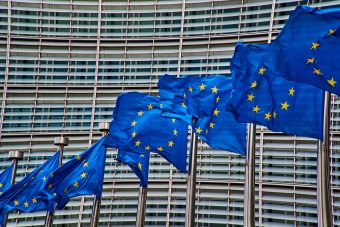Newly adopted guidelines set forth by the European Commission Tuesday aim to tackle climate change by way of the financial sector. The move comes to bolster the success of the Sustainable Action Plan published last year to reorient capital flows toward sustainable investment and manage financial risks from climate change, environmental degradation and social issues.

In short, the guidelines help define an environmentally friendly investment by providing companies with recommendations on how to report the impact of their activities on the climate, as well as how climate change impacts their business.
“The climate emergency leaves us with no choice but transit to a climate-neutral economy model,” said Valdis Dombrovskis, vice-president responsible for financial stability, financial services and capital markets union. “Today’s new guidelines will help companies to disclose the impact of the climate change on their business as well as the impact of their activities on climate and therefore enable investors make more informed investment decisions.”
Efforts will ensure that 6,000 European Union (EU) companies, banks and insurance agencies transition to a climate-neutral economy, furthering 2030 climate and energy framework seeking to cut carbon emissions by 2030. The European Commission takes that goal one step further by seeking to reduce emissions to zero by 2050, which will require many sectors to find an additional annual investment of between 175 and 290 billion euros.
Public and private investments are needed to transform the continent’s ability to deliver on climate-focused goals, according to the EU. To do this, financial planners have defined sustainable finance as a viable method of achieving climate change-related objectives, including climate change mitigation and adaptation, sustainable use and protection of water and marine resources, the transition to a circular economy, waste prevention and recycling, pollution prevention and promoting healthy ecosystems.
Among other things, the new guidelines classify sustainable activities to create a “common language,” establish EU labels for green financial products and strengthen the transparency of companies’ impacts on the environment. The report sets parameters on how businesses can qualify as “green” based on their contributions to the EU’s six environmental objectives without negatively affecting other businesses, reports Reuters.
The guidelines do not include coal and nuclear power and instead support 2030 goals that agree to establish at least one-third share of renewables in final energy consumption, a one-third energy savings when compared to business-as-usual scenarios, and establish a minimum cut of 40 percent in greenhouse gas emissions when compared to 1990 levels.
“The aim of these guidelines is to help companies disclose high quality, relevant, useful, consistent and more comparable non-financial (environmental, social and governance-related) information in a way that fosters resilient and sustainable growth and employment, and provides transparency to stakeholders,” reads the report text, adding that the “non-binding guidelines could represent best practice for all companies that disclose non-financial information.”
Author: Madison Dapcevich
Source: Eco Watch




